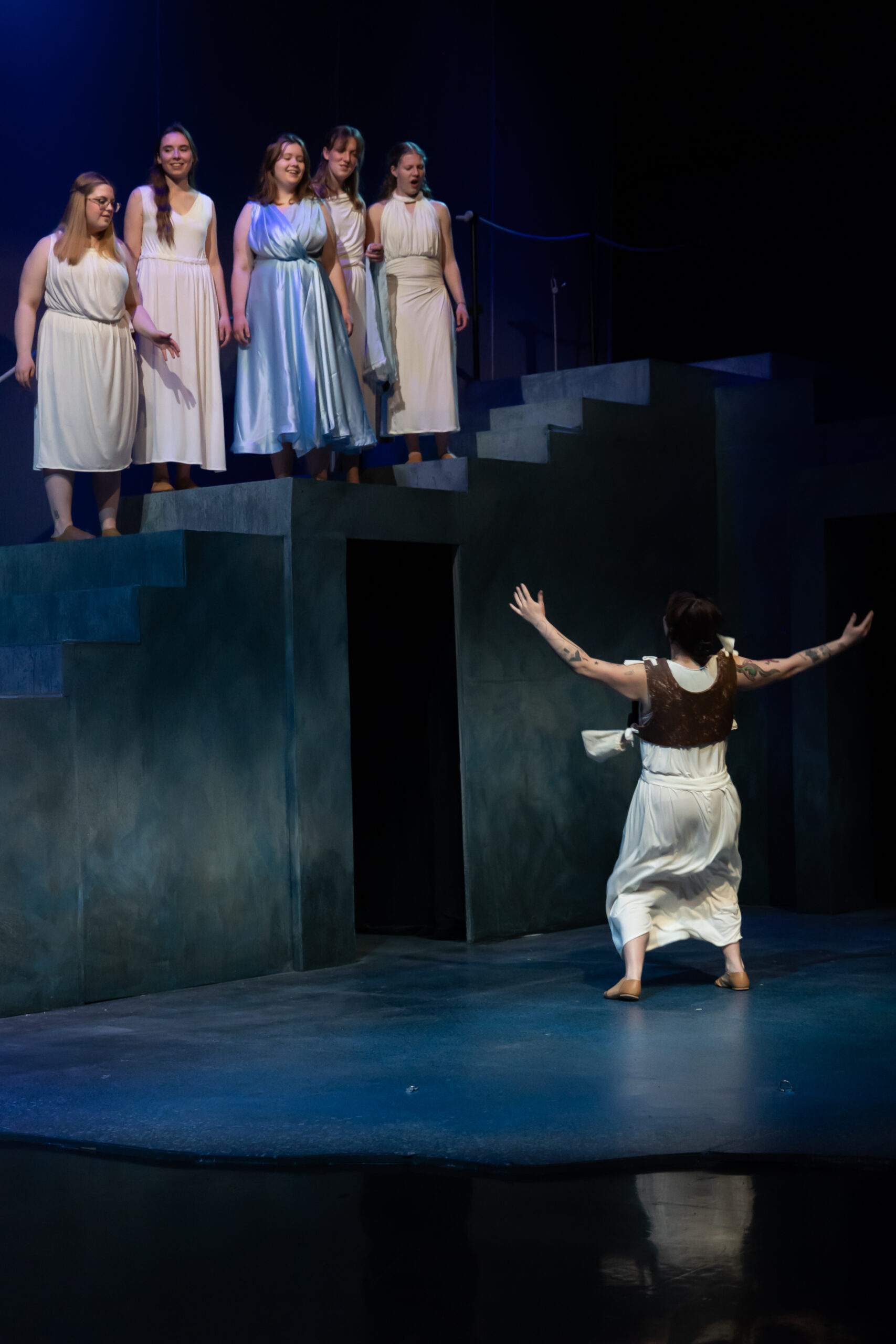Professional-ish “Penelopiad”
Last week, University Theatre hosted its production of Margaret Atwood’s “The Penelopiad” from Thursday, April 11, through Sunday, April 14. The show’s plot revolves around Homer’s “The Odyssey” and “The Iliad” as told from Penelope’s perspective. Penelope is the wife of Odysseus, who most people consider to be the true hero of the ancient stories. The forgotten and disregarded tale of Penelope was told alongside the story of her twelve youngest maids, who were executed by an order from Odysseus.
“The Penelopiad” takes place in Hades, after Penelope and the maids died. It is not to say that the story was a complete narrative, but many of the details bridging the story along were told during long monologues. From this, the scenery played a large part of the “action” with Penelope walking up and down a staircase set piece while being majestically spot-lit. Penelope, played by Rosalie Carlsen ’27, was almost always on stage, either engaging with other maids, watching them from afar, or telling her story through monologue.
“The Penelopiad” contains 32 scenes over two acts. For some scenes, all 12 maids arrived center stage to sing and dance during “chorus” scenes in which they explain the background plot of Odysseus’ journey. In retrospect, this is where the play felt most alive, with the maids never expressing their honest emotions besides these moments. A large sail prop, which covered a large portion of the set, dramatically changed the anger of each song, with some later songs using the sail to help cast a dim red light on their faces. The sail was the only active part of the scenery, with both staircases being permanent throughout the performance.
Additionally, the maid costumes were a very impactful artistic choice. Most of the time, people associate Hades with a modern hellish landscape. However, the maids wore white dresses, which created a contrast of scenes in Hades and retelling the story on Earth. It also proved that the maids were innocent beings, with the white cloth remaining even after they were hanged.
It is also important to highlight the student involvement in the shows. Emily Boswell ’24 is a Music Major who composed most of the show’s score. She said of the play, “working on this collaborative project was such an amazing experience. There was so much support throughout the entire process from director Angie [Sweigart-Gallagher] as well as my advisor In-Sil [Yoo, associate professor of Music]. With their support, I think the final production was a major success and I hope to see some future collaborations between the Music and PCA Departments.”
Others had less flattering opinions on the production. An anonymous source affiliated with “The Penelopiad” claims, “There seemed to be a huge lack of organization and planning in many aspects of the show. My issues with the production process include the planning of rehearsals and how that time was used, as well as more technical aspects including music and blocking… As much ‘fun’ as I had creating the [scene] blocking, that is the director’s job, and a show needs a director who will direct. Throughout the show, there was a general lack of direction. Both in rehearsal and in the rehearsal reports we received, we were not given much help.” The source continues discussing the play’s direction, “outside of our acting, we received little help with learning the songs… If [Sweigart-Gallagher] hopes to direct a musical next Spring, she will need to seriously change her approach on music.” It’s certain that the performances were a hit, as controversial as they may be.



